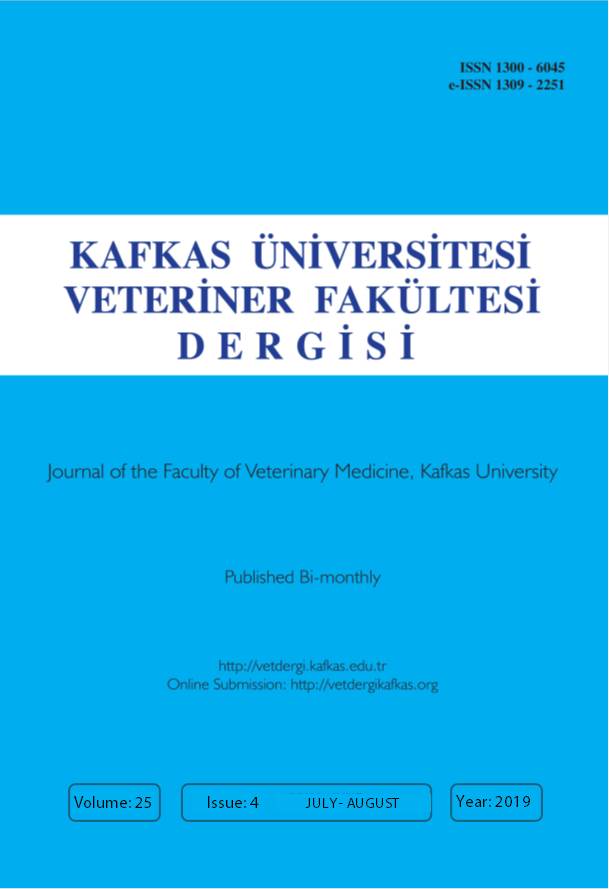
This journal is licensed under a Creative Commons Attribution-NonCommercial 4.0 International License
Kafkas Üniversitesi Veteriner Fakültesi Dergisi
2019 , Vol 25 , Issue 4
Development of a Monoclonal Antibody Against Bovine α-casein to Evaluate Functional Status of Mammary Epithelial Cells During Mastitis
1Veterinary Immunology Laboratory, College of Veterinary Medicine, Northwest Agriculture and Forestry University, Yangling 712100, Shaanxi Province, CHINA2China Animal Health and Epidemiology Center, Qingdao 266032, Shandong Province, CHINA DOI : 10.9775/kvfd.2018.20897 Mastitis is a widespread disease in dairy animals and causes huge economic losses around the globe. Mastitis affects the health of animals and also reduces the protein content in the milk. In lactating animals, the surface of mammary gland is coated and lined with mammary epithelial cells (MECs). The functional status of MECs can be evaluated by determining the expression of caseins. The total content of caseins can largely reflect the quality of milk. In the previous literature, there is no general information about the milk quality and expressions of casein in mastitis. The current study was designed to determine if there is any correlations between mastitis and α-casein expression in MECs. We prepared a hybridoma cell line that produces antibody against bovine α-casein to evaluate the casein expression status in vitro on the MECs during lipopolysaccharide (LPS)-induced mastitis. The results showed that the expression of α-casein has not changed significantly under the stimulation of LPS. Our study established a useful tool to determine the expression profile of α-casein in bovine MECs. Furthermore, the result indicated that the expression level of α-casein remained stable during mastitis. Keywords : α-casein, Monoclonal antibody, Mammary epithelial cells, Mastitis










